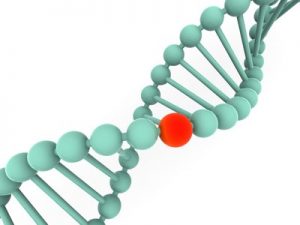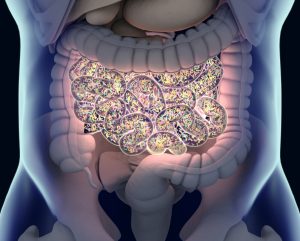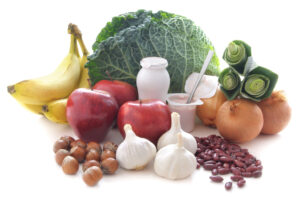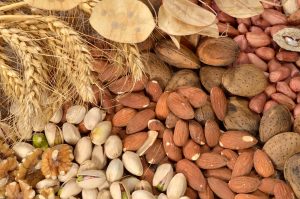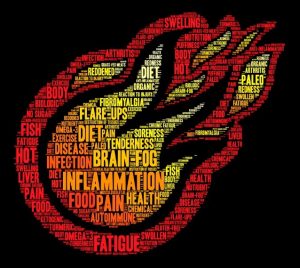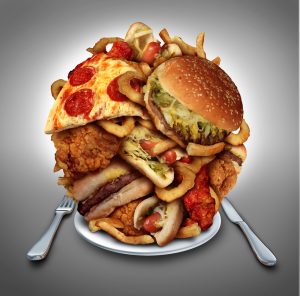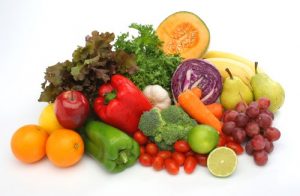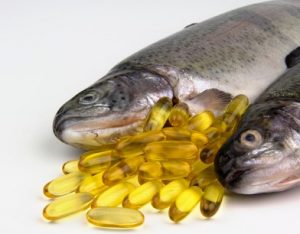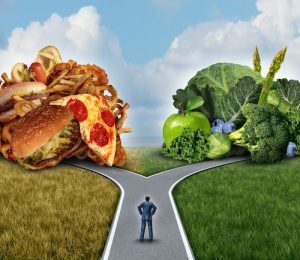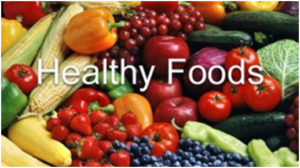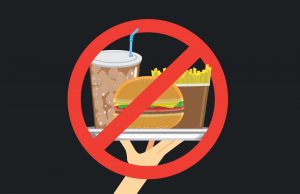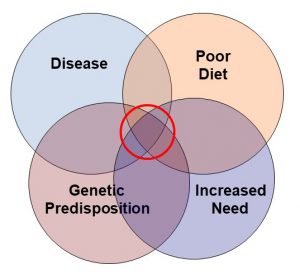You Can Improve Your Health At Any Age
Author: Dr. Stephen Chaney
 If you are like most Americans, your dietary preferences as an adult are based on the foods your family ate while you were growing up.
If you are like most Americans, your dietary preferences as an adult are based on the foods your family ate while you were growing up.
- Your favorite foods…
- Your comfort foods…
- The foods you always avoid…
…are based on your family heritage, not on your genes. And if you are like most Americans, your diet isn’t healthy.
- It’s high in fat and cholesterol…
- It’s high in sugar and refined carbohydrates…
- It’s high in processed foods…
- It’s low in whole, unprocessed foods…
- It’s high in calories, so your waistline keeps growing.
You know your diet isn’t healthy, but you keep coasting along through your 30’s and 40’s until…the unthinkable happens. You are diagnosed with a deadly disease, like heart disease, high blood pressure, or diabetes, and your doctor says that unless you change your diet, you are doomed to a short unhealthy life. You have reached a fork in  the road.
the road.
Changing the diet you grew up with, the diet you love, is a daunting task. It’s tempting to think, “Why bother…
- It’s probably too late to change my diet…
- The damage has already been done…
- I can’t reverse it now.”
If this scenario describes you or someone you love, you aren’t alone. There are millions of Americans just like you. You want to know whether changing your diet is worth the trouble. You want to know whether it is too late, or whether you can still change your health for the better.
Most clinical studies don’t answer this question. Most clinical studies do a diet assessment at the beginning of the study and look at health outcomes 20 or 30 years later. If they do more than one diet assessment during the study, the purpose of these assessments is to show that most people stick to the same diet throughout the study.
These studies measure the effect of habitual diets on health outcomes. They tell you that good diets lead to good health outcomes, and bad diets lead to bad health outcomes. But they don’t tell you whether changing your diet from bad to good in your 30’s or 40’s can have a significant effect on your health.
Fortunately, a recent study has answered this question. This study (Y Choi et al, Journal of The American Heart Association, 10e020718, 2021) started with people in their mid-20s. It looked at whether changing their diet from bad to good in their 30s and 40s had any effect on their risk of developing heart disease in their 50s and 60s.
How Was This Study Done?
 The data for this study were obtained from the CARDIA study (Coronary Artery Risk Development in Young Adults). The study enrolled 4946 young adults (average age = 25, 55% female and 45% male, 50% black and 50% white) and followed them for 32 years (average age of participants at the end of the study = 57).
The data for this study were obtained from the CARDIA study (Coronary Artery Risk Development in Young Adults). The study enrolled 4946 young adults (average age = 25, 55% female and 45% male, 50% black and 50% white) and followed them for 32 years (average age of participants at the end of the study = 57).
Diet was assessed by a trained interviewer at year 0, year 7 (average age of participants = 32), and year 20 (average age of participants = 45).
Adherence of the participants to a healthy, plant-centered diet was assessed using an analytical tool called APDQS that divided the foods eaten by the participants into 3 groups based on their known influence on heart disease:
1) Beneficial.
-
- These foods included fruit, avocado, beans/legumes, green vegetables, yellow vegetables, tomatoes, other vegetables, nuts and seeds, soy products, whole grains, vegetable oil, fatty fish, lean fish, poultry, moderate alcohol, coffee, tea, and low-fat milk/cheese/yogurt.
-
- This is what the investigators considered a plant-centered diet. It encompasses diets ranging from vegan to Mediterranean and DASH.
2) Adverse.
-
- These foods included fried potatoes, refined grain desserts, salty snacks, pastries, sweets, high-fat red meats, processed meats, organ meats, fried fish/poultry, sauces, soft drinks, whole fat milk/cheese/yogurt, and butter.
-
- This could be considered a typical American diet.
3) Neutral.
-
- These foods included potatoes, refined grains, margarine, chocolate, meal replacements, pickled foods, lean meats, shellfish, eggs, soups, and fruit juices.
-
- These foods are not the healthiest, but the evidence that they have a negative effect on health disease risk is inconclusive.
The participants were divided into 5 quintiles based on adherence to a plant-centered diet, with quintile 1 having the lowest adherence and quintile 5 having the highest adherence to a plant-centered diet.
The effect of diet on heart disease was measured in two ways:
1) The dietary data from years 0, 7 and 20 were averaged and the effect of average adherence to a plant-centered diet on the risk of developing heart disease by the time the participants were 57 was measured. This is similar to the design of most other studies looking at the effect of diet and heart disease.
2) The effect of an improvement in adherence to a plant-centered diet between ages of 32 and 45 on the risk of developing heart disease by age 57 was also measured. This is what makes this study unique. Basically, the investigators were asking if you could eat a bad diet for 30 years or more and still reduce your risk of heart disease by switching to a good diet by the age of 45. That is the question that millions of American are asking themselves right now.
Is It Too Late To Change Your Diet?
 As I described above this study asked two distinct questions:
As I described above this study asked two distinct questions:
1) What effect does your habitual diet have on your risk of developing heart disease?
For this portion of the study, the investigators averaged the dietary data collected in years 0, 7, and 20 of the study and ranked the participants diet from 1 to 5 based on their adherence to a plant-centered diet. When they compared the group with best adherence (group 5) with the group with worst adherence (group 1):
-
- Adherence to a plant-centered diet reduced their risk of developing heart disease by 48%.
-
- This is consistent with previous studies looking at the beneficial effects of plant-centered diets on heart disease.
2) What effect does changing your diet from bad to good when you are in your 30s or 40s have on your risk of developing heart disease?
For this portion of the study, the investigators compared the dietary data collected at years 7 and 20 (corresponding to average ages 32 and 45 for the participants) and ranked the participants from 1 to 5 based on improved adherence to a plant-centered diet. When they compared the group with best improvement in adherence (group 5) with the group with worst improvement in adherence (group 1):
-
- Improved adherence to a plant-centered diet reduced the risk of developing heart disease by 39%.
-
- This answers the questions I posed at the beginning of this article. In short, it is never too late to change your diet for the better.
The authors concluded, “In summary, our study shows that long-term consumption of a nutritionally rich plant-centered diet is associated with a lower risk of heart disease. Furthermore, increased [adherence to a] plant-centered diet in young adulthood is associated with a lower subsequent risk of heart disease throughout middle age, independent of the earlier diet quality” [In short, they are saying that changing to a more plant-centered diet in your 30s and 40s reduces your risk of heart disease.]
You Can Improve Your Health At Any Age
 I titled this section, “You Can Improve Your Health At Any Age” for a reason. I wanted to make the point that it is never too late to change your diet, and your health, for the better.
I titled this section, “You Can Improve Your Health At Any Age” for a reason. I wanted to make the point that it is never too late to change your diet, and your health, for the better.
Yes, I realize that the study I described above only shows:
- The effect of changing to a more plant-centered diet in your 30s and 40s.
- The benefit of changing to a more plant-centered diet on heart disease outcomes.
However, we have ample evidence that changing to a more plant-based diet at any age is likely to reduce the risk of many diseases. For example:
- Multiple studies show that habitual consumption of a plant-centered diet is associated with a lower risk of heart disease, high blood pressure, diabetes, inflammatory diseases, some cancers, and premature death for people in their 60s, 70s, and beyond. For example (AJ Glenn et al, Journal of the American Heart Association, 10:e021515, 2021).
- There are multiple reports in the literature of people in their 60s and 70s who had a health scare, changed to a more plant-centered diet, and dramatically improved their health.
While neither type of study can be considered definitive by itself, together they suggest it is never too late to change your diet for the better.
But what changes should you make? As I said above, anything from Vegan to Mediterranean or DASH fits the definition of a plant-centered diet (something I have previously referred to as a primarily plant-based diet).
You could choose the plant-centered diet that best fits your preferences and lifestyle and read books or go online to find details and recipes that will help you transition to that diet…or you could simply:
- Eat more fruit, avocado, beans/legumes, green vegetables, yellow vegetables, tomatoes, other vegetables, nuts and seeds, soy products, whole grains, vegetable oil, fatty fish, lean fish, poultry, moderate alcohol, coffee, tea, and low-fat milk/cheese/yogurt.
- Eat less fried potatoes, refined grain desserts, salty snacks, pastries, sweets, high-fat red meats, processed meats, organ meats, fried fish/poultry, sauces, soft drinks, whole fat milk/cheese/yogurt, and butter.
- Eat these foods in moderation: potatoes, refined grains, margarine, chocolate, meal replacements, pickled foods, lean meats, shellfish, eggs, soups, and fruit juices.
The Bottom Line
If you are like most Americans, you know your diet is unhealthy. But it is the diet you grew up with. It’s the diet you love. So, you keep eating it anyway.
Then you have a wake-up call. You find yourself in your doctor’s office, and your doctor is advising you to change your diet. But giving up the diet you love is difficult, and you wonder if it is worth it. Can you really improve your health significantly by changing your diet now, or is it too late? Has the damage already been done?
Fortunately, a recent study has answered these questions. This study started with people in their mid-20s. And it looked at whether changing their diet from bad to good in their 30s and 40s had any effect on their health in their 50s and 60s. This is what the study found.
- Improved adherence to a plant-centered diet in their 30s and 40s reduced their risk of developing heart disease in their 50s and 60s by 39%.
While this study was very specific in terms of age and disease, I have discussed in the article above why changing to a more plant-based diet at any age is likely to reduce your risk of multiple diseases. In short, it is never too late to change your diet, and your health, for the better.
For more details about this study and how to change your diet for the better, read the article above.
These statements have not been evaluated by the Food and Drug Administration. This information is not intended to diagnose, treat, cure, or prevent any disease.


